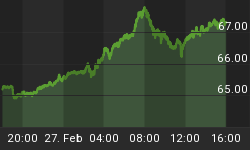Concerns over the spread of the virus, along with the implementation of lockdown measures, have resulted in a significant global increase in cashless payments during the first few months of this year.
In Indonesia, for example, digital transactions rose by 102.5% year-on-year in the first four months of 2020, according to Bank Indonesia (BI), the central bank.
In the UAE, figures from Ken Research found that online grocery orders had increased by 80-100% in the first few months of the year, owing to the virus, while in Saudi Arabia some online retailers had experienced a 200% increase in average sales in the early stages of the pandemic.
Meanwhile, in Kenya, one of the leaders in digital payments in Africa, the government has advised people to use online or mobile methods rather than cash as a precaution against the virus.
To help facilitate this, Safaricom, the largest telecoms company in the country and the owner of the market-leading M-Pesa mobile money platform, announced in mid-March that it would remove fees for all transactions under KSh1000 ($9.42), while also increasing the daily transaction limit for small and medium-sized businesses from KSh70,000 ($659) to KSh150,000 ($1410).
Given these trends, analytics software company Statistica has estimated that, notwithstanding the possibility of a worldwide recession, global digital payments will increase by 14.2% this year.
Companies forced to adapt
The shift in payment methods has also driven retailers and malls to improve their online offerings.
For example, in Dubai a number of larger malls have turned towards online platforms to stimulate retail activity during lockdowns and mall closures.
In mid-April the Dubai Mall, the largest retail space in the UAE, launched its own virtual store on the Gulf e-commerce platform noon.com. The Mall of the Emirates, Dubai’s second-largest mall, also established its own online platform, called ‘Trends at Your Doorstep’, while hypermarket chain Carrefour UAE upgraded its portal into a full-scale online marketplace.
Even for firms with well developed e-commerce platforms, adjustments were necessary to capitalise on changes in demand.
“We have had to adapt from a platform where at any time consumers can buy whatever they want to a platform that primarily makes sure consumers can access basic essentials, such as food, sanitary items and personal hygiene products,” Juliet Anammah, chairwoman of online marketplace Jumia Nigeria, told OBG.
In response to rising online demand, e-commerce platforms were also compelled to improve or expand their delivery and payment services.
“One of the areas that was notably affected was payments, as there was concern about the cleanliness and safety of cash transactions,” Anammah said. “To address this, we migrated to contactless deliveries, and made sure that that our deliverymen had hand sanitiser, wore masks and dropped items at the front doors.”
Cashless strategies
While influenced by the pandemic, the increase in digital payments also aligns with a number of longstanding government policies in emerging markets designed to encourage cashless growth.
In 2014 BI launched the National Non-Cash Movement in Indonesia, which seeks to limit cash transactions by promoting alternative payment methods.
This was supported in 2017 by a ban on cash payments for road tolls and and the introduction of legislation to limit cash payments to a maximum of Rp100m ($7190), which was intended to curb bribery and money laundering. Related: Demand For Life Insurance Soars Despite Dropping Sales
The value of digital transactions in the country has risen dramatically from around Rp11.8trn ($847.2m) in 2017 to Rp145.2trn ($10.4bn) last year, and is expected to experience continued growth amid Covid-19.
Elsewhere, the Financial Sector Development Programme in Saudi Arabia aims to increase the proportion of online payments in the kingdom to 70% by 2030, up from 36% in 2019.
In support of this strategy, in October 2019 the Saudi government implemented the E-commerce Law, designed to regulate digital payments and improve transparency, while on January 31 the Ministry of Commerce adopted the Implementing Regulations of the E-commerce Law, which strengthened oversight in areas such as personal data protection, consumer rights and disclosure obligations.
Such an approach should also help boost financial inclusion, which is generally lower in emerging markets than in developed ones.
While the global percentage of people over the age of 15 who had a bank account stood at 68.5% in 2017, according to the World Bank’s most recent Global Financial Inclusion Index, the figure was just 34.9% in low-income countries.
Long-term shift?
The pandemic has undoubtedly accelerated the uptake of alternative payment methods and helped normalise their usage in emerging markets. However, Anammah believes there are a number of factors that could determine whether such a shift will endure over the long term.
“The Covid-19 pandemic will encourage more people to move away from cash transactions to the extent that they have a choice,” she said.
“In fact, we have seen recently that many of our customers in Nigeria do not want to use cash if possible. This choice is based on multiple factors, such as access to devices with digital payments, and the cost of the transaction and payment solution. It is important to breakdown all these elements to make sure the cost of digital transactions is sufficiently low to encourage more people to go digital.”
More Top Reads From Safehaven.com:
















